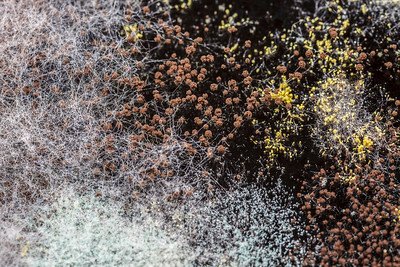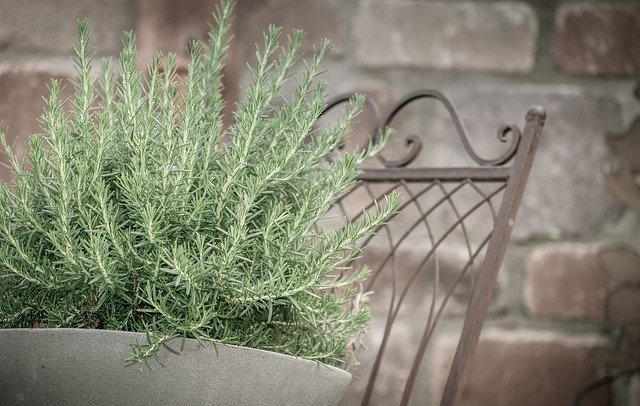Houseplants have become quite trendy. Everybody seems to love a nice houseplant, but what if you work with them every day? Can they trigger allergies in indoor gardeners? Can houseplants make you cough?
Houseplants, especially indoor ones do make us cough.
Table of Contents
what does it mean when you cough when near flowers?

When you have an allergic reaction to something in the environment, your body releases histamines. These are chemicals that cause symptoms like sneezing, runny nose, and watery eyes. In some cases, histamines can also cause the airways to constrict, leading to coughing.
If you find that you start coughing whenever you’re near flowers, it’s likely that you’re allergic to pollen. Unfortunately, there’s no cure for pollen allergies, but there are some things you can do to lessen your symptoms. During high-pollen times of the year, try to stay indoors as much as possible.
When you go outside, wear a dust mask or other protective gear. And be sure to shower and change your clothes after being exposed to pollen so that you don’t track it into your home. With a little care, you can minimize your allergy symptoms and enjoy the beauty of flowers without coughing fits.
Here are some possible reasons why your houseplants can make you cough.
Some house plants release chemicals into the air which trigger the cough.
Some plants release chemicals into the air to deter natural enemies, which include insects, diseases, and other potential threats. The chemicals may be natural pest repellents such as pyrethrum that are sprayed on some plants to keep insects away.
Some plants like eucalyptus release airborne chemicals designed to form a barrier of oils between the plant and insect pests which explains why they might make you cough when you have a cold or flu. Some houseplants produce a chemical to protect themselves from being eaten by their natural enemies.
The mold in potting soil can cause coughing.

A study presented at the 233rd national meeting of the American Chemical Society showed that a variety of houseplants will release allergens into the soil. Potting soil is a rich source of mold and the damper the soil, the better the mold grows. When you have a potted plant in your home or office, the spores given out by the mold can enter your respiratory passage and lead to irritation. This leads to the typical coughing and sneezing that indicates an allergic response.
Although it is annoying to have an allergic response to spore-laden air, there is no need to worry about this condition. According to the website of the Mayo Clinic (MayoClinic.com), the condition will subside naturally after a couple of days.
The pollen from houseplants can also make you cough.
Allergies are an immune system response that causes the body to react negatively to a foreign substance – like pollen from a plant.

The immune system is not only responsible for fighting off infection, but also for protecting the body from foreign substances. When your immune system overreacts and produces antibodies against something like pollen, you have allergies.
A typical allergy test can determine whether or not you are allergic to pollen or other substances, like dander from pets.
For allergic rhinitis and asthma, the most common houseplants to blame include palms, ferns, and spider plants. These plants are also known to cause conjunctivitis.
While the amount of pollen indoors is likely low in comparison to outdoor amounts, the allergen level can be affected by the airflow in the home. When a plant’s pollen is airborne, it travels through the air and can stick to clothes and other surfaces. The pollen may then be inhaled when a person brushes against them.
According to Dr. John Schulien, a Kansas State University professor of horticulture, an indoor plant allergy is a true pollen allergen. Pollen from houseplants has the same genetic makeup, and proteins inside the pollen, as any other pollen. This makes it nearly impossible to eliminate pollen from houseplants, as pollen is everywhere.

How to prevent allergic reactions to houseplants.
The good news is that you can avoid such a situation by being a little careful in selecting the plant you bring home. The best approach is to choose a hardy plant that does not need overly moist soil. There are several plants that come in an interesting variety, including cacti, succulents, and those that are both low maintenance and easy to grow.
Common questions related to houseplants and allergies.
Does mullein make you cough?
Mullein is a common herbal remedy that has been used for centuries to treat a variety of respiratory ailments. The herb is thought to work by helping to reduce inflammation and thin mucus, making it easier to cough up. Mullein is often taken as a tea, but it can also be found in tincture or capsule form.
While there is some anecdotal evidence that mullein can help to ease coughing, there is little scientific research to support this claim. However, mullein does contain compounds that have been shown to have anti-inflammatory and expectorant properties, making it likely that the herb does have some benefits for coughs and colds.
can houseplants cause breathing problems?
While it is true that houseplants can release pollen and other allergens into the air, it is unlikely that they will cause any serious breathing problems. However, if you have a noticeable reaction to a houseplant, it is best to remove it from your home. The most common offenders are members of the fern family, as well as certain types of palms and cacti.
If you are allergic to dust or mold, you may also be more sensitive to the pollen released by houseplants. If you have asthma or another respiratory condition, it is always best to consult with your doctor before bringing any new plants into your home. In general, however, there is no need to worry about houseplants causing breathing problems.
Is it safe to keep indoor plants in the bedroom?
If you’re looking to add a bit of life to your bedroom, indoor plants are a great option. Not only do they purify the air and provide a splash of color, but they can also boost your mood and help you relax. If you are interested to know more about this subject, check out our article which discusses this topic in detail here.
what plants give off oxygen at night?
Many people believe that plants give off oxygen only during the day, but this is not the case. While it is true that most plants do produce more oxygen during the daytime hours, some of them continue to produce oxygen at night as well. Check out our article on plants that produce oxygen for 24 hours.

Gardening is my passion and growing plants indoors has always been a stress relief for me. Grow a banana tree in my apartment once (although failed to produce bananas).






